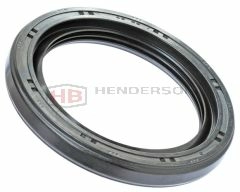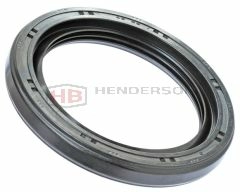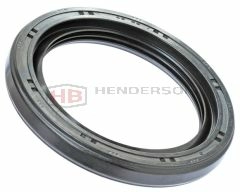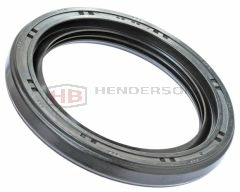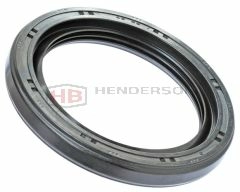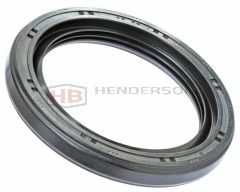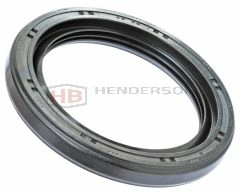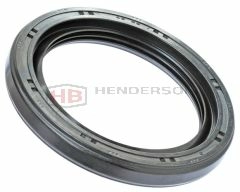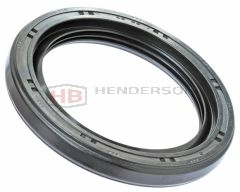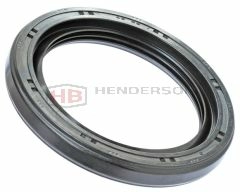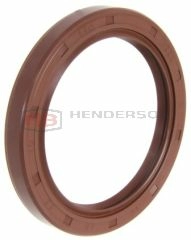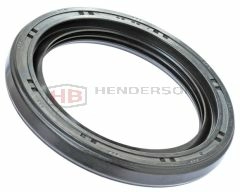Rotary Shaft Seals - 142.875mm - 171.45mm = 6-3/4" - 72mm
Rotary Shaft Seals, also known as oil seals or lip seals, are critical components designed to prevent lubricant leakage and keep out contaminants, thereby ensuring the smooth operation and longevity of machinery.
About Rotary Shaft Seals
These seals are indispensable in systems where maintaining a robust seal between rotating and stationary parts is crucial. They find widespread application across various machinery including motors, pumps, bearings, and gearboxes.
The materials typically used for Rotary Shaft Seals include Nitrile (NBR) and Viton (FPM). Nitrile is the most common choice due to its excellent compatibility with most mineral oils and greases, operating effectively within temperatures ranging from -65° to 225°F (-54° to 107°C) and generally comes in black. Viton, renowned for its premium qualities, offers a broader temperature range and superior chemical resistance, stretching from -40° to over 400°F (-40° to over 204°C). It effectively resists many lubricants and chemicals that degrade other materials, ensures exceptional wear and abrasion resistance, and is typically coloured brown.
There are various designs based on the type of lip used in these seals, such as the R21 which features a single lip for standard sealing, R23 which includes a wiper lip providing additional protection against external contaminants, and R4 which has a metal single lip suitable for heavier duty applications.
If you require more information or assistance in finding the precise specifications needed for your application, please contact our sales professionals at Tel:-01425-477787, or email sales@hendersonbearings.co.uk.
What does a rotary shaft seal do?
A rotary shaft seal is designed to maintain the functionality and efficiency of machinery by sealing the area where a rotating shaft extends through a component's housing. Its key roles are:
- Keeping lubricants in: It prevents oils or greases from leaking out of the machine, avoiding excessive wear and potential failure of machinery.
- Keeping contaminants out: It blocks dirt, water, or other environmental contaminants from entering the machinery, protecting the shaft and internal components from damage.
What is the best seal for a rotating shaft?
The ideal seal for a rotating shaft largely depends on specific operational factors such as shaft speed, environmental conditions, system pressure and temperature, and the fluid type involved. Popular options include:
- Mechanical seals: Best for high-pressure environments and when minimal leakage is crucial. These feature two flat surfaces, aligned with the rotating shaft and stationary housing, pressed tightly together.
- Lip seals: Also known as radial shaft seals, these are widely used across various sectors for their cost-effectiveness and reliable performance, suitable for moderate pressures and speeds.
Can an O-ring seal a rotating shaft?
O-rings are generally not recommended for sealing rotating shafts due to their suitability for static or slow-moving joints. High-speed rotations can cause O-rings to wear out rapidly due to friction and heat buildup. For such applications, different types of seals should be considered.
What type of seal is most commonly used to seal a rotating shaft?
The most commonly used seal for rotating shafts is the lip seal, or radial shaft seal. Characterized by a rubberized layer with a metal insert and a spring to maintain tension, these seals handle moderate speeds and temperatures effectively. Lip seals are preferred in various settings, from automotive engines to industrial machines, due to their affordability, ease of installation, and wide availability.
